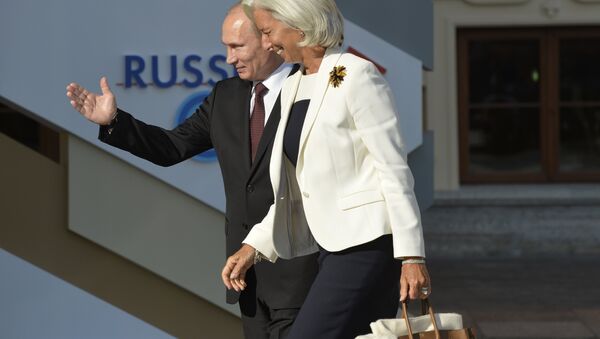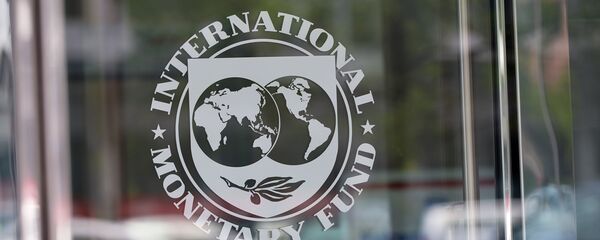The IMF’s historic 2010 quota and governance reforms have finally become effective.
“The International Monetary Fund’s (IMF) 14th General Quota Review, which delivers historic and far-reaching changes to the governance and permanent capital of the Fund, have now been satisfied,” says a statement on the official website of the Fund.
Other members of the top 10 include the United States, Japan, and the four largest European countries by GDP (France, Germany, Italy, and the United Kingdom).
China will have the third largest IMF quota and voting share after the United States and Japan, and India, Brazil and Russia will be among the top 10 members of the IMF.
The amendment was approved by the IMF’s Board of Governors back in 2010.
In order for the proposed amendment on reform of the Executive Board to enter into force, acceptance by three-fifths of the Fund's 188 members (or 113 members) having 85 percent of the Fund's total voting power is required. As of January 21, 2016, 149 members having 94.04 percent of total voting power have accepted the amendment.
It is set to come into effect in the coming weeks.
“US foot-dragging on reforms to the institution had blocked changes meant to give more voting power to BRICS and other emerging economies, frustrating countries around the world,” The BRICS Post website commented on the issue.
The changes include a number of significant outcomes.
For the first time, the IMF’s Board will consist entirely of elected Executive Directors, ending the category of appointed Executive Directors (currently the members with the five largest quotas appoint an Executive Director).
Advanced European countries have committed to reduce their combined Board representation by two chairs.
These reforms will double the IMF’s quota resources and reallocate the quota. That meant reducing the role of advanced European countries and Gulf states, and increasing that of emerging nations, particularly China.
“The entry into force of these reforms will reinforce the credibility, effectiveness, and legitimacy of the IMF,” the IMF said in the statement.
“The reforms represent a major step toward better reflecting in the institution’ s governance structure the increasing role of dynamic emerging market and developing countries.”
Meanwhile, China and the other BRICS countries have launched a $100 billion New Development Bank (BRICS Bank) and the China-led Asian Infrastructure Investment Bank, the first major global financial instruments independent from the Bretton Woods system.




